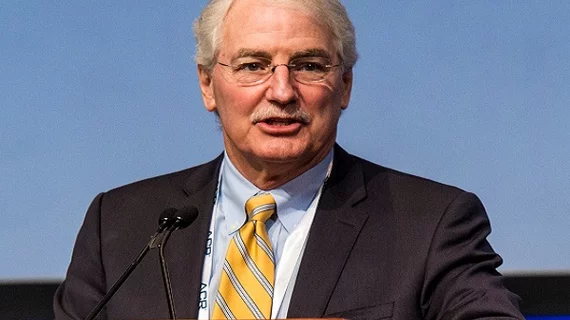Grant radiologists more authority as ‘treating physicians,’ ACR urges federal government
The American College of Radiology is asking the federal government to grant imaging physicians more authority, which could help address care shortages during the pandemic.
In particular, ACR wants the Centers for Medicare and Medicaid Services to revise its policies to give radiologists “treating physician” authority. This would allow such specialists to order diagnostic tests, and put its members on equal footing with primary care and other specialists, the college wrote in a recent letter to the agency.
“ACR respectfully requests that CMS take action to remove this unwarranted limitation on radiologists,” CEO William Thorwarth Jr., MD, noted April 1. “The need for action by CMS is made only more critical due to the current COVID-19 pandemic. Acting on ACR’s request will allow radiologists most fully to utilize their deep expertise in the area of diagnostic testing to help patients (and other specialties of physicians) during a time period of unprecedented need and resource constraints.”
Thorwarth noted current regulations dictate that diagnostic tests must be ordered by a treating physician. That’s defined as a doctor who “furnishes a consultation or treats a beneficiary for a specific medical problem, and who uses the results in the management of a beneficiary’s specific medical problem.” CMS has interpreted this provision to exclude radiologists, except for those furnishing an interventional procedure.
The ACR believes this rule is based on an “antiquated view” that radiologists operate only as referred-consultant specialists with limited patient interaction. Thorwarth asserted that an increasing number of radiologists have both the capability and desire to take on a larger role in patient care; they just need the go-ahead from CMS.
“Having a radiologist manage aspects of a patient’s care is sometimes simply in the best interest of patients—especially where the nature of the patient’s conditions necessitates complex radiological procedures or significant follow up implicating radiological care,” he wrote. “Far too often, the wrong study is ordered by nonradiologist providers, who are not familiar with the next best imaging test,” he added.
Read the entire letter and attachments here.

